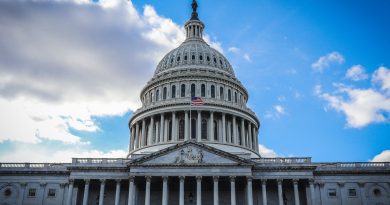For Europe and Asia, There’s a New Sheriff in Town
By Francesca Regalado
Managing Editor
Three words summarize John Mearsheimer’s landmark realist tome, The Tragedy of Great Power Politics: Anarchy begets hegemony. I have thought about this frequently in the turbulent three months since November 8, 2016.
For those who have never been treated to Mearsheimer’s bleak, no-nonsense prose, he argues that because the international order is an anarchic system in which no centralized authority exists to enforce peace and justice, states must rely on self-help to protect themselves against the uncertainty of other states’ intentions. The best way to do that is to amass as much relative power as possible – that is, to become a hegemon.
If anarchy begets hegemony, then to keep the global peace, the international order requires an adult in the room, a role the president of the United States now seems incapable of filling. Luckily for everyone else, China and Germany are ready and willing to audition.
While other world leaders (i.e., Theresa May and Shinzo Abe) are treading carefully around the volatile new president, Xi Jinping has already figured out how to extract what he wants from the United States: ignoring a petulant child effectively compels him to relent. Case in point: According to The New York Times, offended by Trump’s phone call with the president of Taiwan, Xi refused to speak with Trump until the latter promised to uphold the One China policy.
Xi was handed a golden opportunity when Trump signed an executive order to withdraw the United States from the Trans-Pacific Partnership. The United States had much to gain from a partnership that included 11 other countries that produce about 40 percent of global trade, according to The Washington Post, while excluding the large competitive economies of the European Union and China. Disappointed TPP states may now look to China and the Regional Comprehensive Economic Partnership proposal, which would create a free trade zone encompassing the 10 ASEAN nations and six trading partners, including Japan, South Korea, and India. A free trade zone would be the ultimate opening for China to make amends with neighbors that have historically viewed it as hostile.
The United States should also be concerned that China may overtake it in a new profitable venture that America had been expected to lead. If the space race was the pissing match of the Cold War, clean energy innovation is the name of the game today. In 2016, Chinese firms made a record-breaking $32 billion investment in international clean energy projects, in addition to $103 billion invested domestically, according to Climate Change News. In contrast, the United States spent only $44.1 billion on domestic clean energy projects last year, and prospects for further investment are dwindling under the Trump administration. Many of China’s investments were made in developing countries, giving China a third of the global market share for hydropower, solar energy, and wind power, according to the Institute for Energy Economics and Financial Analysis.
On the other side of the world, Germany, the de facto leader of the European Union, also stands to gain from an American retrenchment. For proof that the German Chancellor can be the adult in the room, witness Angela Merkel’s shuttle diplomacy at the height of the Ukraine crisis. Merkel may face a hearty challenge in the federal election later this year, but fortunately for the EU, recent polls as Reuters reports favor one of its own: Martin Schulz, a former president of the European Parliament. Germany would by default win the competition for influence in the EU if the French election favors Marine Le Pen, a candidate in the vein of Trump who has promised a referendum on France’s membership in the EU.
Possibly triggered by Trump’s posturing on NATO, Germany’s foreign minister indicated this month that the country would commit to gradually meet the NATO military spending threshold of 2 percent of GDP. Two percent of the GDP of Europe’s largest economy is not a pittance, and according to Politico, meeting the NATO threshold would also make Germany Europe’s largest military power, easily overtaking Russia, the United Kingdom, and France.
The windfall of political, economic, and military power would drive Europe under Germany’s umbrella in the face of an unreliable United States and a resurgent Russia, and compel Asia to pursue the previously unpalatable prospect of trusting China. What sphere of influence would the United States have left? Trump has either insulted or ignored the developing nations of Latin America, and The New York Times reports that his team seemed skeptical of the value of foreign aid in Africa – both regions, by the way, where China has reaped goodwill by sowing significant contributions in aid and infrastructure.
Trump may be putting America first, but it is easy to be first when you are all alone.

